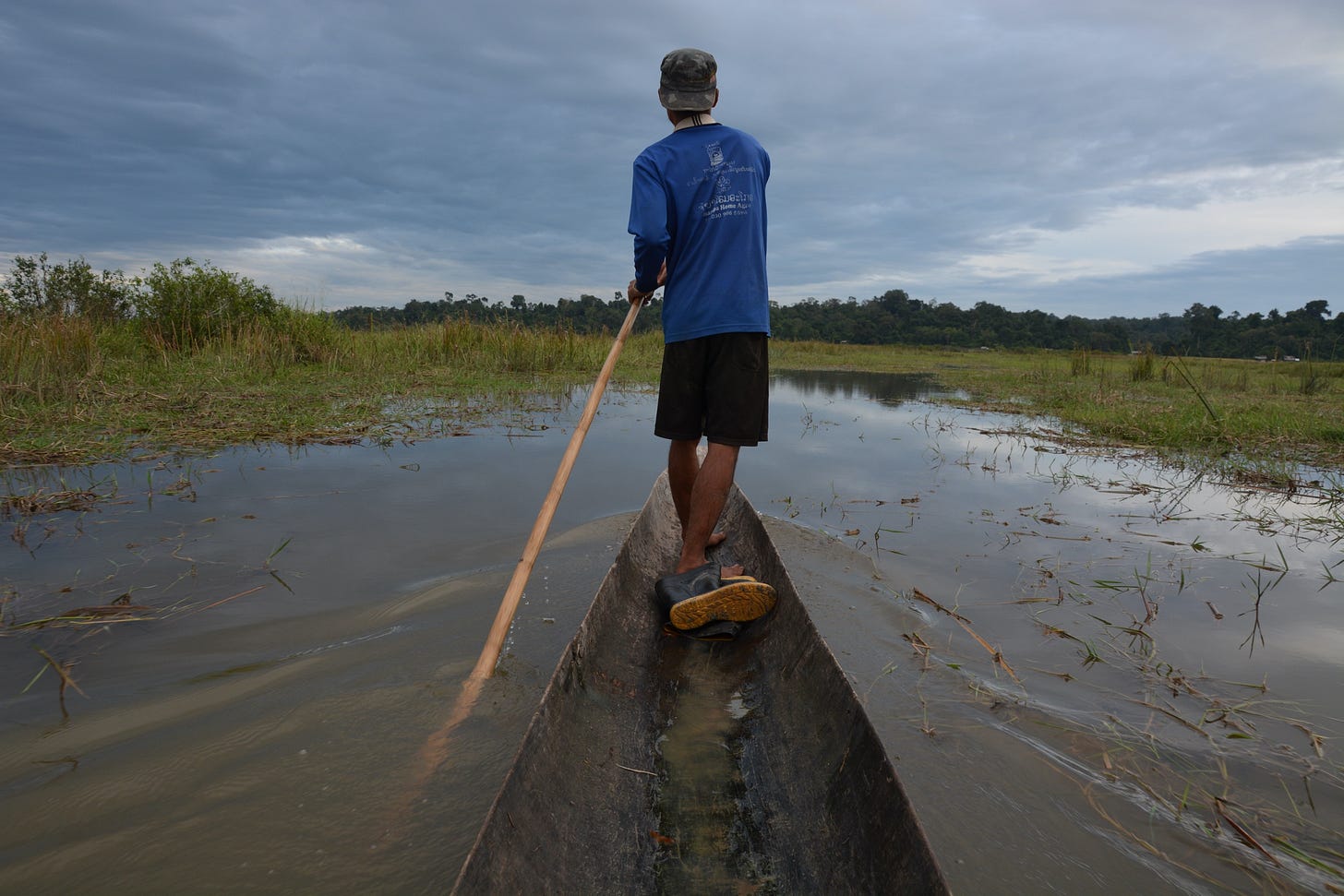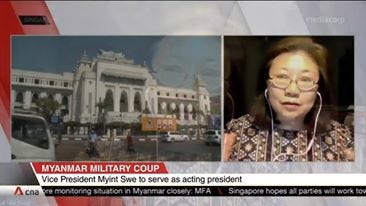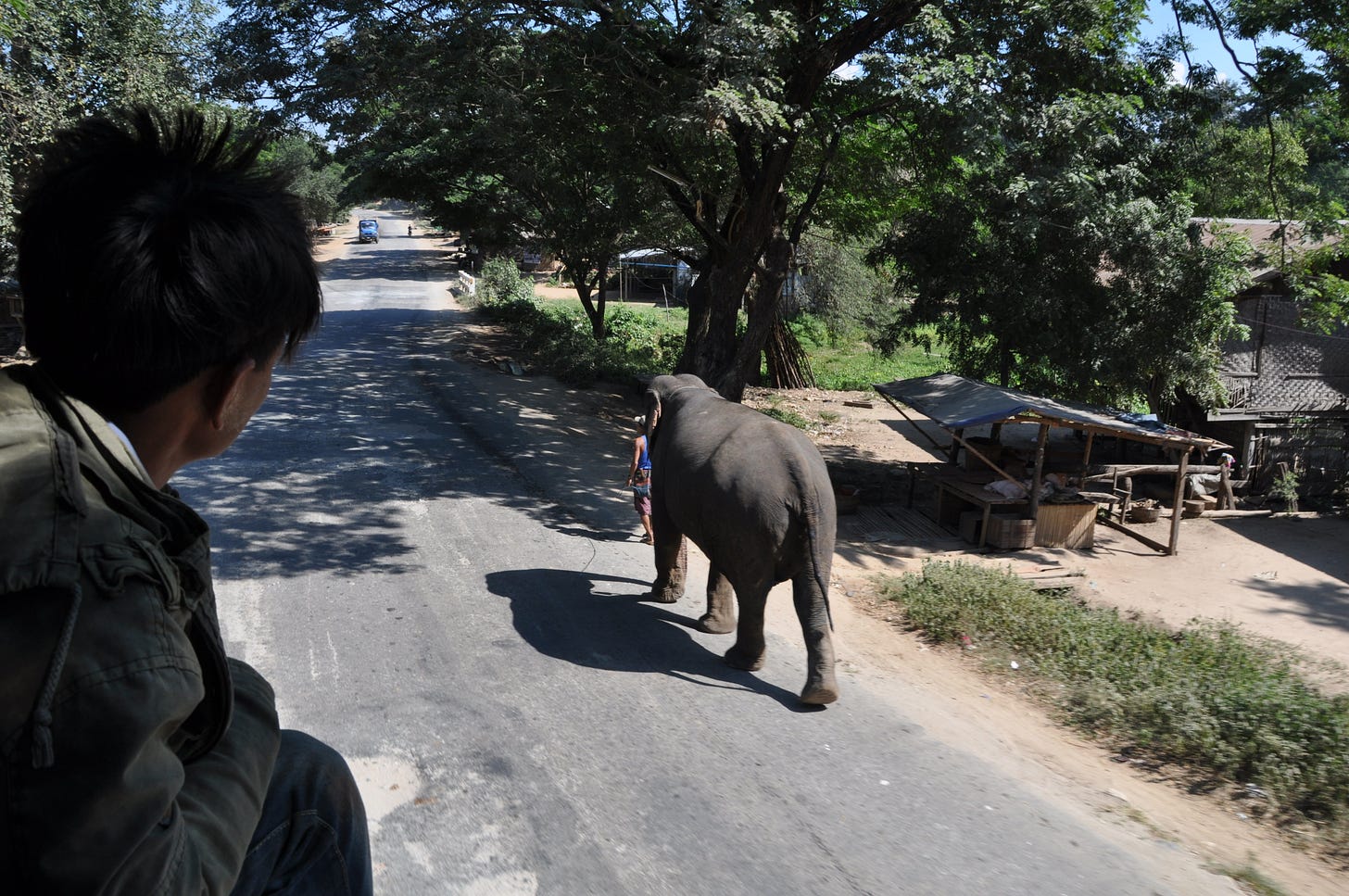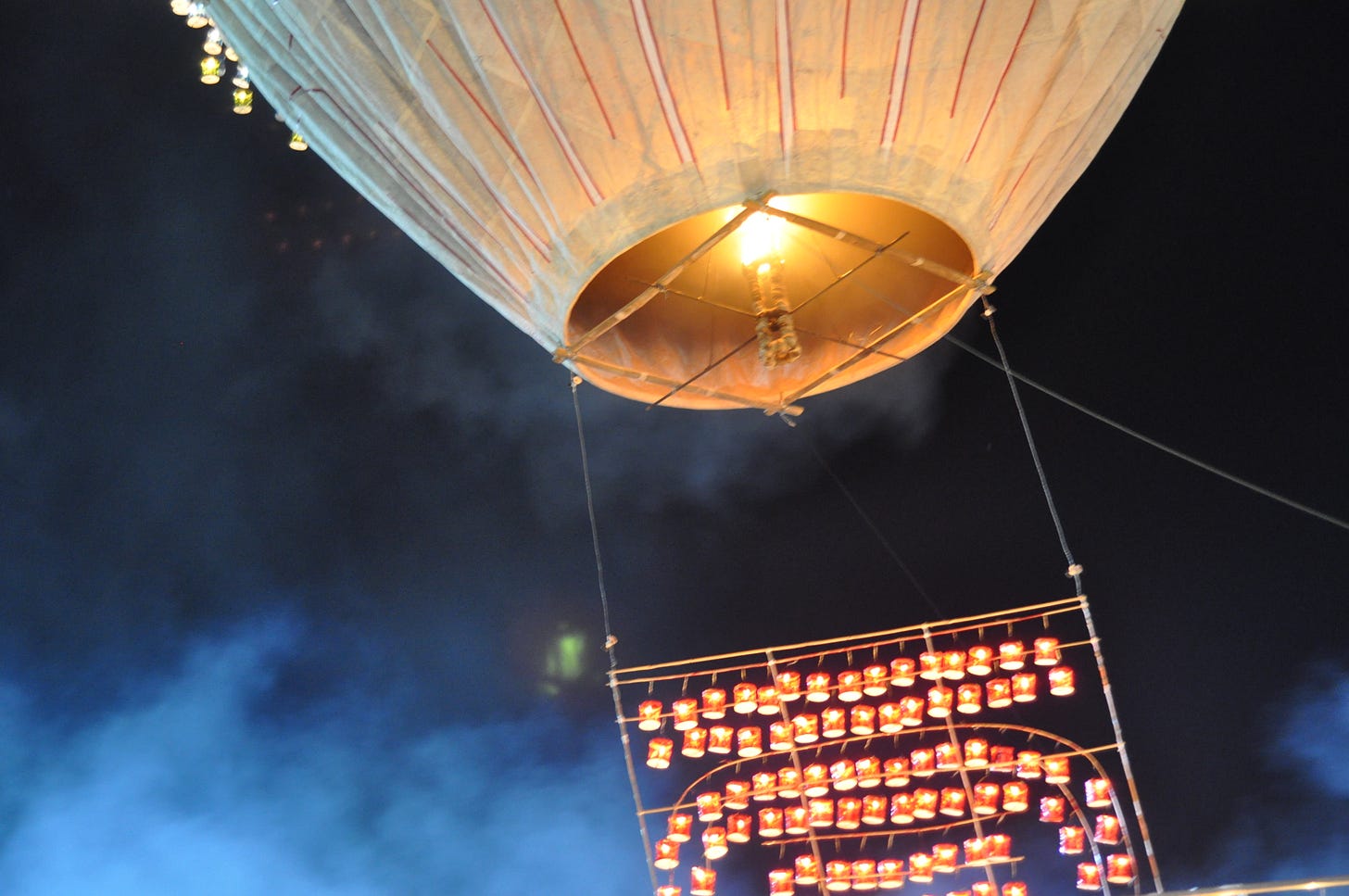Travelfish #417: Burmese Daze + New Travelfish Long Read
Hi all,
So much for February being better than January right? Monday morning broke with the news that many were fearing—a coup in Burma was underway. More on that below. If you want to keep abreast of developments, I made a Twitter list of accounts worth following here.
Yesterday we launched our latest longread. Titled The Messenger, little is written about LGBTIQ in Laos. Why? We talk to Anan Bouapha, Laos’ most prominent advocate for people of diverse sexual & gender identities, about LGBTIQ in Laos and what the future holds. You can read the story for free via this link.
This story was funded through our crowdfunding of 2020—thank you to everyone who made a donation.
The Messenger. The latest Travelfish long read. Photo: Cindy Fan.
On Couchfish, you may enjoy an interview I did with Caroline Mills who runs a small resort an hour south of Hoi An in Vietnam.
Also on the free to read section, I looked at travel through Southeast Asia virtually, and thought about how sometimes we do do travel a bit wrong.
On paid–for Couchfish, I looked at two swims, two saves and a lot of squid in Hoi An, and then compared two of Hoi An’s classic dishes. I finished off the Vietnam section with some thoughts on border towns.
Over on Thai Island Times, David’s Thai island and coastal news wrap will make for a nice change from endless grim stories about Burma.
Good travels
Stuart
Burmese Daze
So much for February being better than January right?
Monday morning broke with the news that many were fearing—a coup in Burma was underway. For those watching Burma over the last few decades, it played out in a depressingly familiar way.
Looking for the sign to democracy. Pyay, Burma. Photo: Stuart McDonald.
Here is Amitav Ghosh in the historical novel, The Glass Palace, on Burma’s promise in the early to mid 20th Century:
“Mandalay, it was confidently predicted, would soon become the Chicago of Asia; prosperity was the natural destiny of a city that guarded the confluence of two of the world’s mightiest waterways, the Irrawaddy and the Chindwin.”
Mandalay never became the “Chicago of Asia”, but it did get the gangsters—or, in Burmese parlance, cronies.
The cronies, and the military that perpetuate them, despite the window dressing, never left the building. Yesterday, they displayed their power. This isn’t about control. With a bastardised constitution and electoral process (which they seem woefully inept at), that was never on the table.
Thankfully and unlike coups in the past, there has not been widespread bloodshed.
What happens when monetary policy is run by an idiot. Yes, the sack is full of notes. Yangon. Photo: Stuart McDonald.
As per chapter one of How To Undertake A Coup In Burma, the junta is following their same tried and tested route.
Aung San Suu Kyi, NLD politicians and a raft of activists and others have been arrested. A State of Emergency has been declared for a year. Flights were grounded and there have been reports some banks have closed. Connection to the outside world have been hamstrung. A line–up of generals have been slotted into governing positions. They replace those elected by popular mandate and who were about to take their seats in government.
If there is one thing these clowns do know how to do, it is how to seize power. If only they knew how to run a country.
The regime is an odious one. This is the regime that used slave labour for infrastructure and tourism projects. That put children in uniform, armed them, and sent them into battle. That used rape as a weapon. That instigated genocide against the Rohingya. That imprisons opposition leaders, activists, religious leaders, journalists and common citizens. That interfered with UN efforts after cyclone Nargis—a disaster that left 200,000 dead and a million homeless.
Passing traffic from the roof of the bus. Meiktila to Kalaw. Photo: Stuart McDonald.
Writes Paul Theroux in The Great Railway Bazaar, in the early 1970s:
“There were wincing sentries at the entrance to the viaduct with rifles on their shoulders; the wind blew through their wall–less shelters and the drizzle continued. ... The cooks ladled the stews on to large palm leaves and plopped down a fistful of rice; this the travellers ate with hot cups of hot weak tea. The rain beat on the roof and crackled on the mud outside, the Burmese hurried to the train with chickens bound so tightly in feather bundles, they looked like a peculiar kind of native handicraft. I bought a two–cent cigar, found a stool near a brazier, and sat and smoked until the next train came.”
The above passage could have been written last week rather than fifty years ago. The country has largely been going backwards since 1962 when Ne Win seized power. To be fair, there was a brief interlude semi–recently. The country started to open up, but then it embraced genocide and Aung San Suu Kyi disgraced herself.
Writes ICG:
”This dramatic turn of events constitutes an immense setback for democracy in Myanmar, less than a decade after the country began to steer a course away from half a century of military rule. ”
Ne Win’s Burmese Way to Socialism cratered the economy. Bizarre monetary schemes, delivered under the thrall of an astrologer, wiped out savings. Under him and his ilk, Burma moved from having the region’s second highest GDP to, in 1987, requesting “least developed country” status.
Rising hopes dashed for now. Taunggyi Balloon Festival. Photo: Stuart McDonald.
As the country rotted, the junta and its cronies have enriched themselves. The cost to the local population has been horrific. And as with back through the decades, it is here that the true costs of yesterday’s madness will play out.
Writes George Orwell in Burmese Days, in the 1940s:
“U Po Kyin halted in his stride. He was astonished. “Good gracious, woman, what idea have you got hold of now? You do not suppose that I am rebelling against the Government? I—a Government servant of thirty years’ standing! Good heavens, no! I said that I had started the rebellion, not that I was taking part in it. It is these fools of villagers who are going to risk their skins, not I.”
To finish on a lighter note, there’s the video of the woman doing aerobics while the coup rolls out behind her.


Good travels
Stuart
Ten things worth reading
To Everyone Traveling Right Now: Stop It.
“But there’s an obligation in it, too. Travel is not a singular, solitary action. It is not something that exists in a vacuum. We interact with our environments, with the community and cultures that we find ourselves in. If we travel during a pandemic, we aren’t simply assuming risk for ourselves. We’re endangering everyone around us.”
Da Lat's Ngàn Cafe Is as Comforting as an Embrace
A hammock hangs beneath the canopy, fresh flowers in vases, expressionist paintings on the wall, guitars, vintage album covers line neatly on a shelf — the attention to detail is apparent.
Plea for Hua Lamphong
“The future of the city landmark remains unknown. The SRT, however, is reported to be keen on keeping it as a museum.”
With a Gift of Art, a Daughter Honors, if Not Absolves, Her Father
“It is a stunning turn of events for Cambodians who saw so many of their country’s ancient artifacts disappear during the reign of Pol Pot and the surrounding years of civil war.”
How Bangkok's Khao San Road evolved from a rice market into the world's most famous travel hub
“From that point forward, every time I came back to Banglamphu for the guide's biannual update, the number of places to stay had multiplied exponentially.”
How Thailand’s ‘Egg Boy’ statue became a tourism phenomenon
“Yet it’s hard to imagine that Por and his fellow monks aren’t at the very least overwhelmed by the estimated 8,000 visitors the temple is thought to receive on an average weekday. ”
Vietnamese Brewery Names Beers After Disputed South China Sea Islands
Preserving Brutal Histories, One Garment at a Time
“Conservation of these collections was difficult for many reasons — their scale and poor conditions, the responsibility of safeguarding this history as an outsider — but mainly because washing the clothes was out of the question.”
Asia Hikelopedia
Like hiking? Here you go.
How much is an elephant worth? Meet the ecologists doing the sums
“Really, he says, ecosystem services are meant to help us understand that plants, animals and intact ecosystems are worth more to humans alive than dead.”
Thank you
Thanks again for supporting Travelfish through reading and sharing both this newsletter and the site.
Good travels
Stuart










